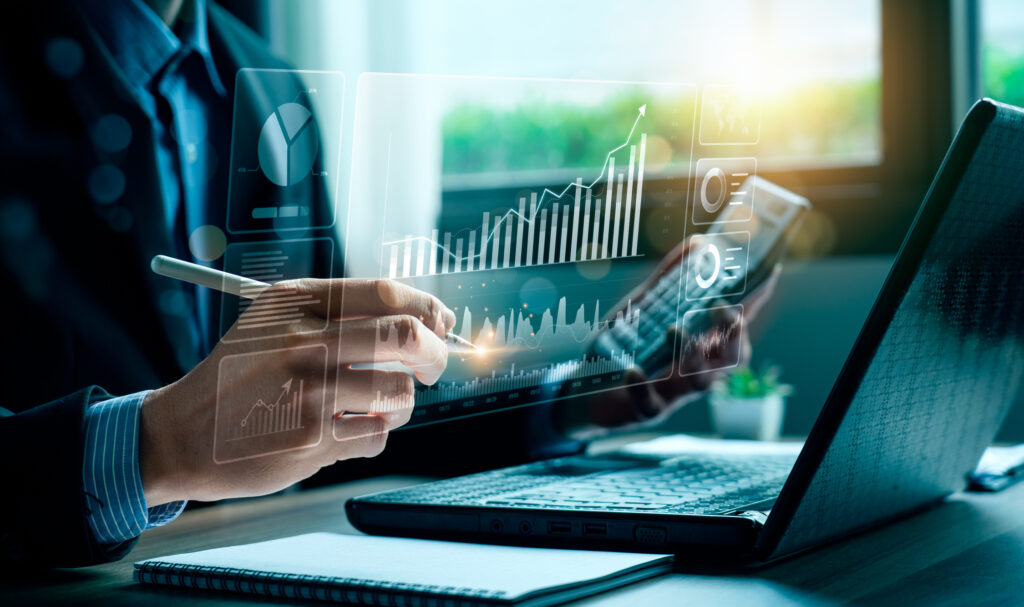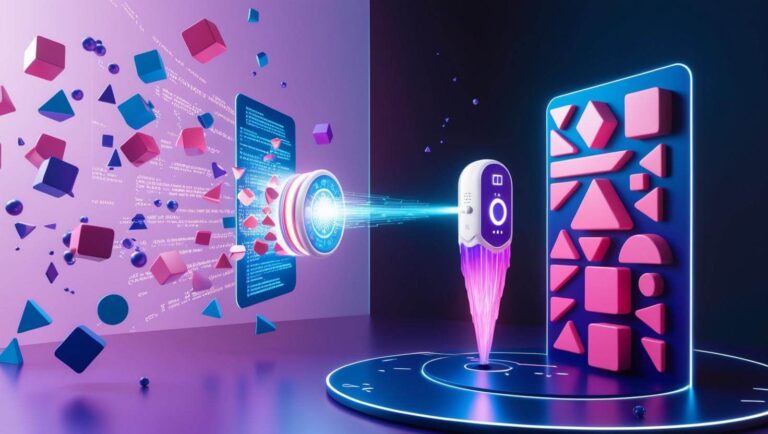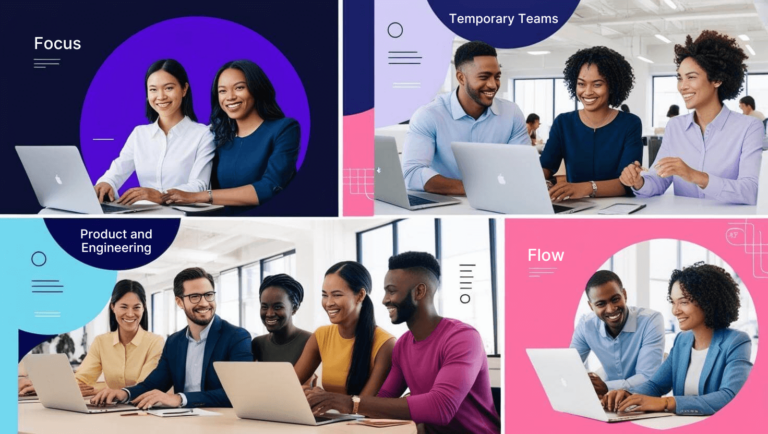In 2024, the hospitality industry faces many challenges that make it difficult to create a unique and exciting experience for every guest from A to Z. These challenges include evolving customer expectations, labor shortages, and economic uncertainties. To meet high customer demands in a fast-paced society, hotels must utilize technology-driven solutions to prioritize exceptional service and personalized experience. However, it is not easy to find the right solution that caters to the exact needs of a specific hotel, considering factors like precise requirements, budget, implementation complexity, usability, and ROI. Additionally, looking at different vendors and their solutions and features takes valuable time off a hotelier’s day.
Recently, many new hotel technology providers have appeared on the market, and new developments aim to make a hotel’s daily operations more manageable, efficient, and even more automated. Hoteltechreport identified a few trends regarding which solutions were most reviewed during the 2023 award period:
- The operations department was the most tech-focused, with 25% of reviews related to operations products.
- Channel managers emerged as the most popular category, gathering the most votes from hoteliers.
- The fastest-growing categories were contactless check-in solutions, with a 72% year-over-year increase in hotelier votes, followed by Upselling Software (+42%) and Hotel CRM (+38%).
With all of these possibilities and solutions on the market, it’s hard to decide which solutions are the best fit and where to invest. This guide should give an overview of what to consider when choosing a solution and making a buying decision.

Hotel Tech Solutions Overview
Let’s first look at four main categories where technology is a hotelier’s best friend. Every hotel has its key areas where a functioning hotel tech stack helps digitalize the workflows and meet the demands of a modern hotel and traveler.
#1 Facilitating Daily Business and Operations
Solutions such as property management systems, payment systems, guest feedback and surveys, staff collaboration, and meetings and events play a crucial role in enhancing daily business operations within a hotel. Property Management Systems streamline tasks related to reservations, room allocations, guest check-in/check-out, and overall guest management, leading to improved operational efficiency. Payment Systems facilitate secure and convenient payment processing, reducing errors and enhancing the guest experience. Guest Feedback platforms such as TrustYou CXP enable hotels to gather valuable feedback from guests, allowing them to address concerns promptly and improve overall guest satisfaction. Staff Collaboration tools promote communication and teamwork among hotel staff, leading to smoother operations and better guest service. Meetings & Events software simplifies the planning and coordination of events within the hotel, ensuring seamless execution and enhancing the overall guest experience.
#2 Elevating Guest Experience
Integrating guest-centric solutions such as guest messaging, digital check-in, digital checkout, keyless entry, Wi-Fi, and guest apps significantly enhances the hotel’s on-site guest experience through efficiency and personalization.
Guest Messaging platforms enable seamless communication between guests and hotel staff, ensuring quick responses to queries and personalized assistance, thereby improving overall guest satisfaction. Digital check-in and digital checkout streamline the arrival and departure processes, minimize wait times, and provide a smoother experience for guests. These systems, coupled with keyless entry, offer guests the convenience of accessing their rooms using their smartphones, eliminating the need for physical key cards and further expediting check-in. These technology initiatives create a more guest-friendly experience and support a hotel’s need to focus on costs and operational efficiency.
High-quality Wi-Fi and Guest Apps provide guests access to essential information, services, and entertainment options, elevating their overall experience and satisfaction during their stay. Additionally, they open the door for upsell opportunities.
#3 Boosting Revenue
Implementing Revenue Management Systems, Channel Managers, Business Intelligence Solutions, Rate Shopping, and Parity Management significantly boosts revenue efforts within a hotel. They help drive revenue growth, optimize pricing strategies, and enhance the hotel’s financial performance.
When properly connected, the right mix of these services becomes revenue-boosting machines. If we look at a hotelier’s everyday tech stack, there is value to be gained from the individual components. For example, Revenue Management Systems enable dynamic pricing and inventory control, allowing hotels to optimize room rates based on demand fluctuations, ultimately maximizing revenue. Channel Managers facilitate efficient distribution and management of room inventory across various online channels, ensuring broad market exposure and maximizing occupancy and revenue potential. Rate Shopping tools help hotels monitor competitor pricing, allowing them to adjust their rates strategically to remain competitive and capture additional revenue.
These are only a few of the services available. Consider others with discrete value, such as Parity Management solutions and Business Intelligence Solutions channels, which protect the hotel’s brand value and reduce the risk of revenue dilution from price discrepancies. As stand-alone products, they each help improve a hotel’s performance. However, the more important question is, what is the compounded effect of the complete system working together? What is the gain of a Revenue Management System when coupled with your PMS, CRS, Channel Manager, and Rate Shopping system? How much work can be automated, and how effective can you become at maximizing revenue?
Together, these technology solutions play a vital role in driving revenue growth, optimizing pricing strategies, and enhancing the overall financial performance of the hotel.
#4 Pushing Marketing Efforts
The integration of key technology solutions such as Customer Relationship Management (CRM), Customer Data Platform (CDP), Reputation Management, Internet Booking Engine, Direct Booking Solutions, Website Chat, Metasearch, and AdTech supports hotels in pushing and facilitating their marketing efforts to drive more bookings.
CRM and CDP systems enable personalized and targeted marketing strategies, allowing hotels to understand guest preferences and behavior, nurture relationships, and tailor promotions to drive direct bookings and repeat business. Reputation management tools help in monitoring and enhancing online reviews and ratings, influencing potential guests’ booking decisions. Internet booking engines and direct booking solutions offer a seamless and user-friendly booking experience, driving direct bookings and reducing dependency on third-party channels. Website chat enhances customer engagement and support, guiding potential guests through the booking process and addressing queries in real time.
Metasearch and AdTech solutions enable hotels to expand their reach and visibility across relevant digital platforms, directing potential guests to their direct booking channels. By leveraging these solutions, hotels can effectively market their offerings, engage with potential guests, and ultimately drive more bookings while maintaining control over their distribution and revenue strategies.
Factors to consider when selecting hotel technology
When a hotel selects a new technology solution, several factors need to be considered to ensure that the chosen solution aligns with the property or group’s specific needs and operational requirements.
#1 Hotel size and type
Firstly, the size and type of the hotel, whether a leisure resort, city hotel, business property, chain hotel, or independent boutique hotel, are critical determinants in selecting an appropriate technology solution. Different types of hotels have distinct focus points and priorities, necessitating solutions tailored to their specific characteristics.
#2 Compatibility with other systems
Check on existing and planned integrations of other technology systems when selecting a new solution. Ensuring seamless compatibility and avoiding potential conflicts with existing systems is essential for the tech stack’s overall success. A well-designed and built tech stack allows for smooth operations, efficient communication between systems, and streamlined processes. By considering how the new technology solution will integrate with the current and future tech infrastructure, hotels can prevent disruptions, maximize efficiency, and create a cohesive ecosystem that enhances overall performance in today’s dynamic hospitality environment.
#3 Scalability
It is important to ensure that the chosen technology solution can accommodate future expansions or changes in the business, allowing it to adapt and grow along with the hotel’s evolving needs. By considering scalability, hotels can minimize the risk of outgrowing the technology solution and undergoing a costly and disruptive replacement in the future. A scalable technology solution enables hotels to easily expand operations, introduce new features or services, and adapt to changing market demands, ultimately supporting the long-term growth and success of the business. Thinking ahead and selecting a solution that can scale with the hotel’s growth strategy is essential in today’s competitive hospitality industry.
#4 Prioritization
By identifying critical issues, hotels can prioritize their investments and allocate resources effectively to tackle the challenges that have the most significant immediate impact on their operations. Understanding the urgency of these problems will help hotels make informed decisions on where to invest first, ensuring that the selected technology solution addresses the most pressing needs and provides tangible benefits and solutions to enhance operational efficiency and guest experience.
#5 Implementation and Rollout
Understanding the timeline for rollout, training, and implementation is essential to gauge when the hotel can effectively utilize the chosen solution and benefit from its features. By assessing the duration of these processes, hotels can manage expectations and plan for a smooth transition to the new technology. This includes ensuring minimal disruption to ongoing operations and adequately training staff to leverage the solution effectively. The ability to “get to work” with the new technology is a crucial factor, and hotels should aim to select a solution with an efficient rollout process, allowing them to quickly integrate the technology into their daily operations and realize its impact on improving efficiency, guest satisfaction, and overall performance.
#6 Stakeholders
When a hotel evaluates a new technology solution, consider who will benefit from the investment and get their buy-in where necessary. The impact of the technology should be assessed across different stakeholders, including staff, operations, and finance. For example, when looking at technology that primarily benefits guests, ensure that it enhances their overall experience by providing convenience, personalization, and efficiency while validating that staff members experience improved workflows, increased productivity, and streamlined communication. From an operational perspective, the technology should optimize processes, improve efficiency, and enhance decision-making capabilities. Financially, the investment in technology should lead to cost savings, revenue growth, and a positive return on investment. Hotels can make informed decisions that align with their strategic objectives and deliver value across all business areas by identifying and understanding how each stakeholder group will benefit from the technology solution.
#7 Goals and Outcome
The hotel needs to identify why the solution is necessary and what specific outcomes it aims to achieve. These goals may include boosting revenue by leveraging data analytics for targeted marketing strategies, improving guest experience through personalized services and seamless communication channels, or increasing operational efficiency by automating processes and workflows. By defining these goals and understanding the potential impact of the technology solution, hotels can align their investments with their strategic objectives, drive innovation, and ultimately achieve long-term success in a competitive hospitality market.
#8 Budget Restrictions
When encountering budget restrictions for technology investment in a hotel, starting with a smaller package or lite version of the solution is advisable rather than opting for a less powerful or inadequate option. Starting with a smaller package allows the hotel to get a feel for the technology, its benefits, and return on investment (ROI) without making a significant upfront financial commitment. As the benefits and ROI of the technology become more visible and tangible, the hotel can strategically plan to upgrade or scale up the solution to meet its growing needs and demands. This approach helps manage budget constraints effectively and ensures that the hotel invests in a solution that aligns with its requirements and delivers the desired outcomes over time. By starting small and upgrading later, hotels can make informed decisions, monitor performance, and optimize their technology investments for sustainable growth and success.
#9 Positive Return on Investment
Achieving a positive return on investment (ROI) is critical when implementing new technology in a hotel. The advantages gained from the technology should outweigh the expenses incurred for software or hardware, leading to cost reductions, revenue growth, and operational efficiencies for the hotel.
Understanding ROI has two stages: pre-technology purchase and post-technology purchase. To accurately estimate the future ROI of the investment, it is critical to understand historical business metrics supported by historical data and formulate realistic assumptions on how enhancements resulting from the new technologies under consideration will affect the business. While predicting the impact of new technology can be challenging, looking at studies or experiences from similar hotels or competitors can provide valuable insights to support decision-making when ROI is difficult to predict. It is then necessary to implement ongoing post-purchase tracking to ensure you get the most from your tech investments.
Tracking metrics month-by-month and setting clear revenue goals are crucial for assessing the impact and understanding the efficiency of the new technology over time. By comparing the previous state to the current state, hotels can evaluate how the technology implementation has influenced operations, revenue, and guest experience. Additionally, internal benchmarking within the hotel’s portfolio can help set realistic targets and measure performance against other properties within the group. By continuously monitoring and analyzing the results, hotels can gauge the success of their technology investments and make informed decisions to drive sustainable growth and profitability in the competitive hospitality industry.
Conclusion
#1 Selecting the Right Technology Partner:
Look for technology providers with a deep understanding of the distinctive obstacles faced in the hospitality sector. A 2-3 year contract makes sense to understand and see the benefit of a solution fully. Together with your chosen provider you can develop a proper understanding of what is important to you and how to make the most out of your solution. If budget is an issue, speak to your solution of choice and see which packages are available. The experts for each topic are just one click or call away!
#2 Address urgent matters first:
Identifying areas where technology is needed the most e.g. to support your staff’s workload should be the main priority that they have more time to take care of the guests. Additionally, if you can deliver measurable results quickly, doors are going to open to discuss future (technology) investments.
#3 Track KPIs for Effective Decision-Making:
Decide on KPIs and realistic goals that you want to achieve with the investment of a technology solution. It’s important to have an eye on and understanding of ROI to continue to make data-driven and strategic decisions that suit your hotel.
#4 Get buy-in from your team
When deciding on a new technology, make sure also to involve your team members who are responsible for certain areas and who will also have to use the solutions. Their point of view from a day-to-day operational perspective might change your perspective on what is the best solution for your hotel, needs, and the team that’s using it.


